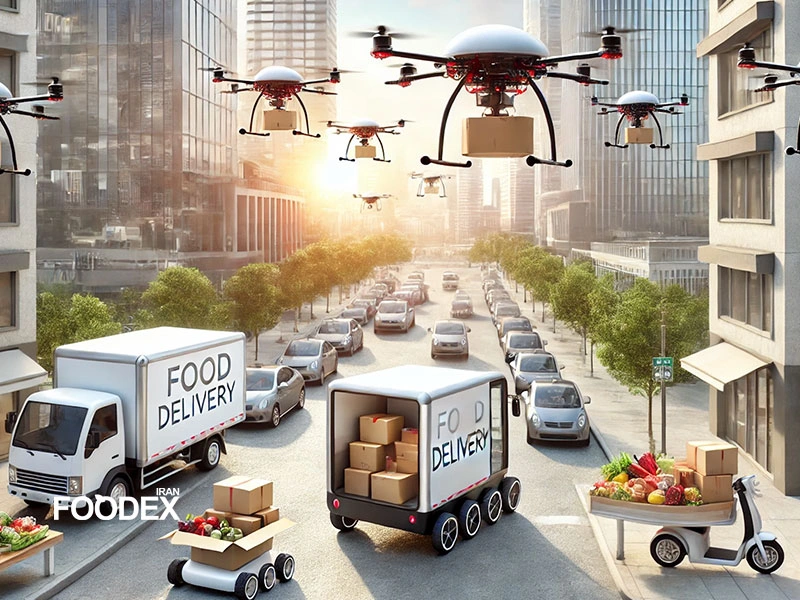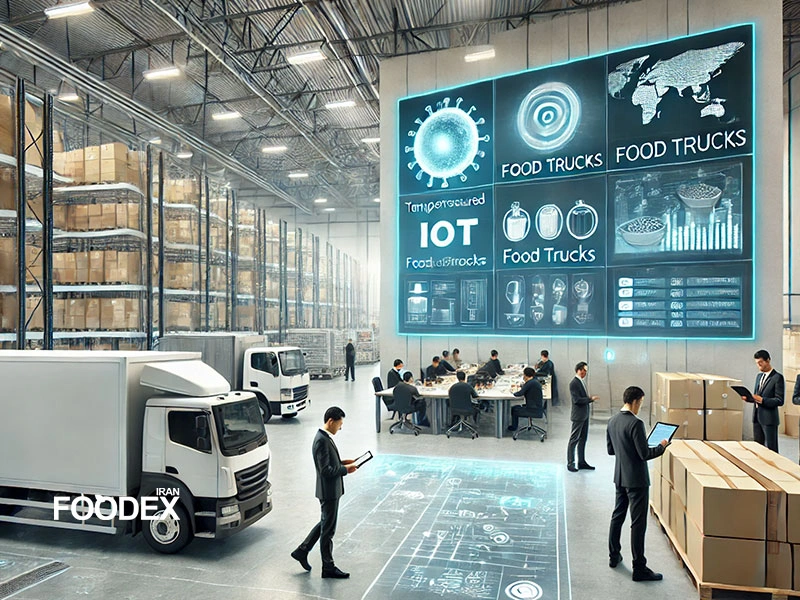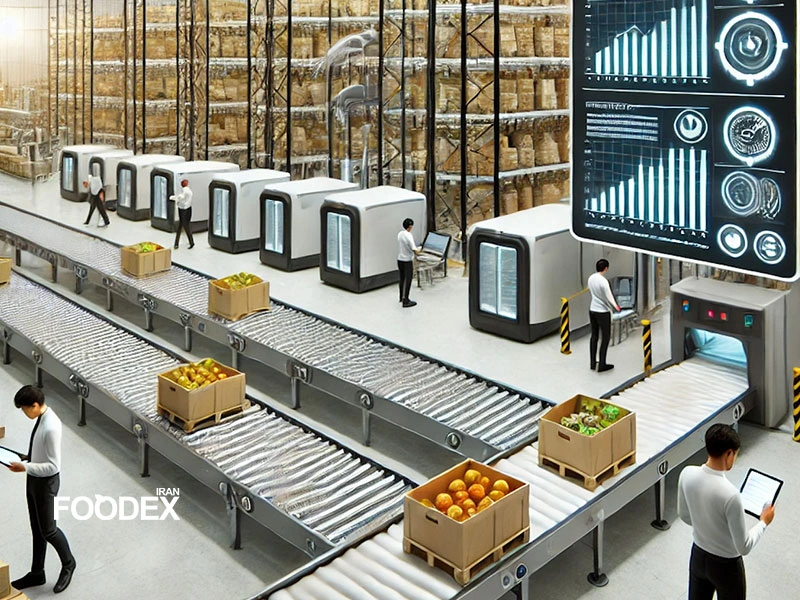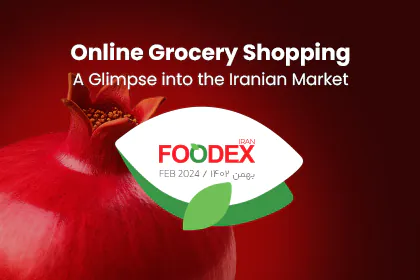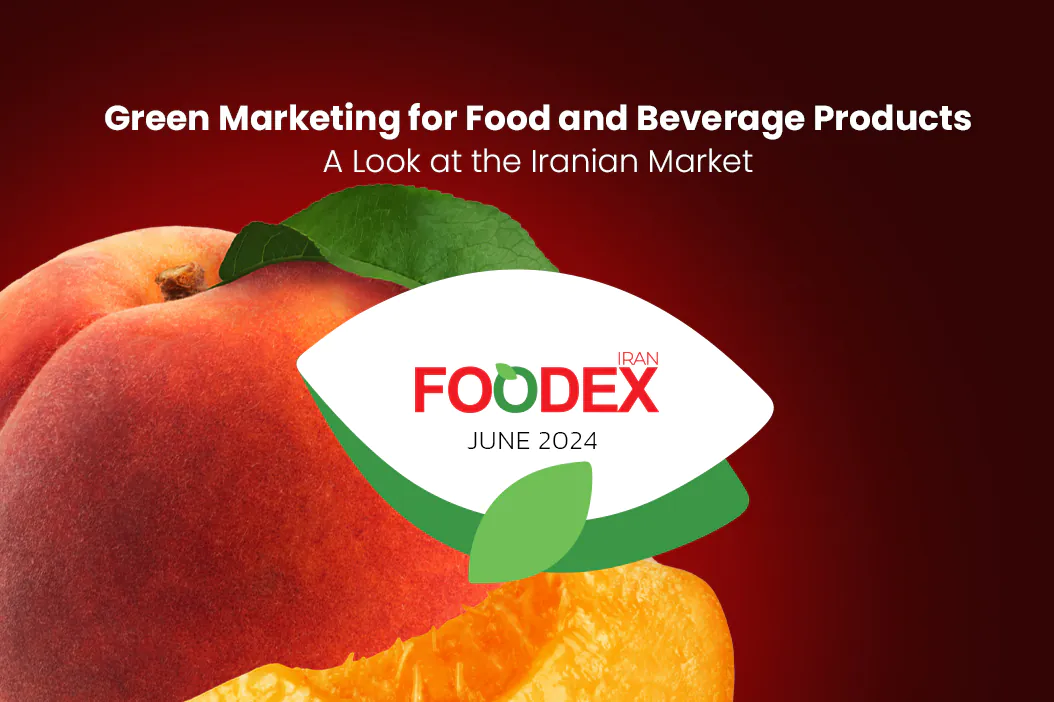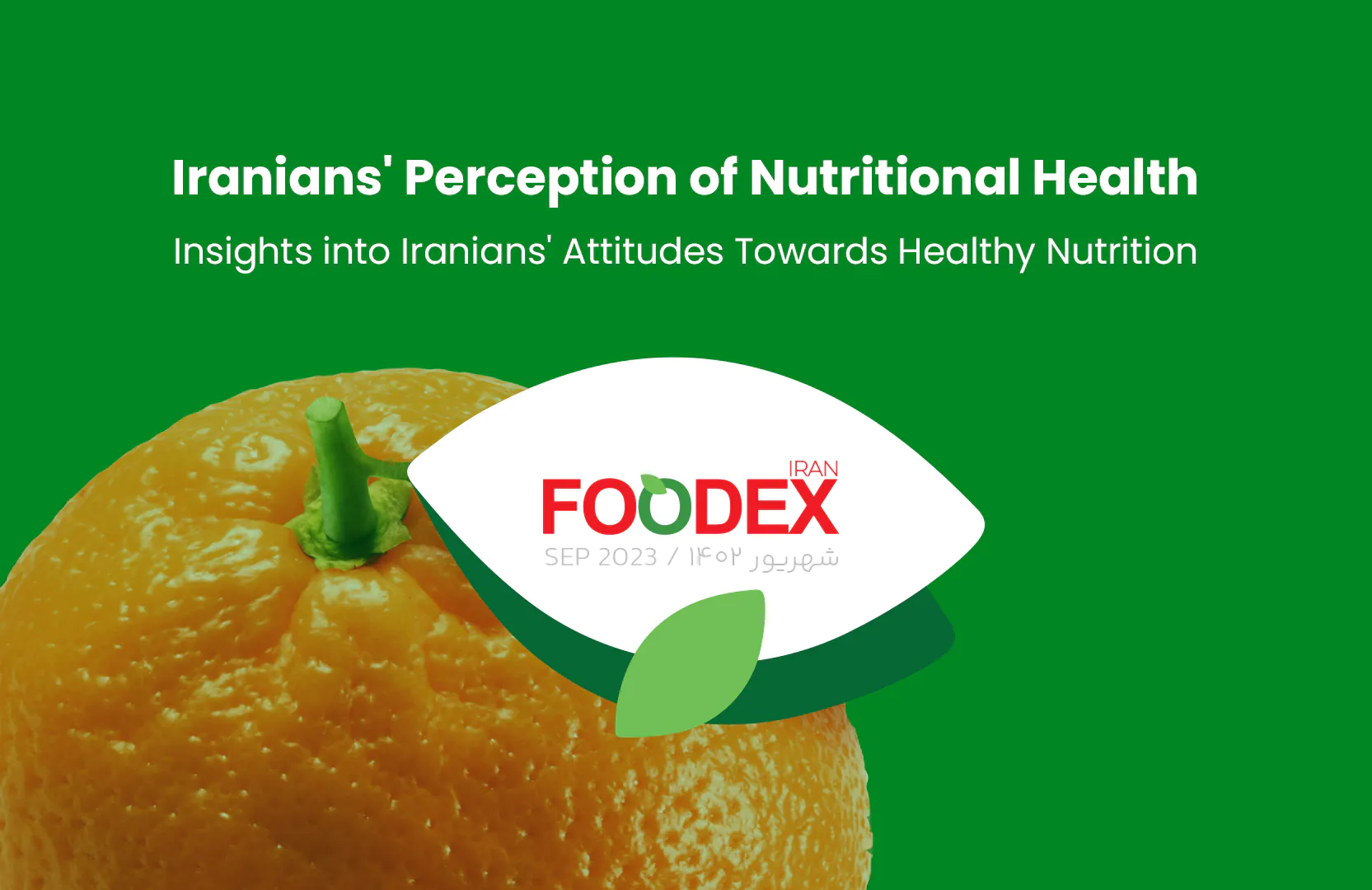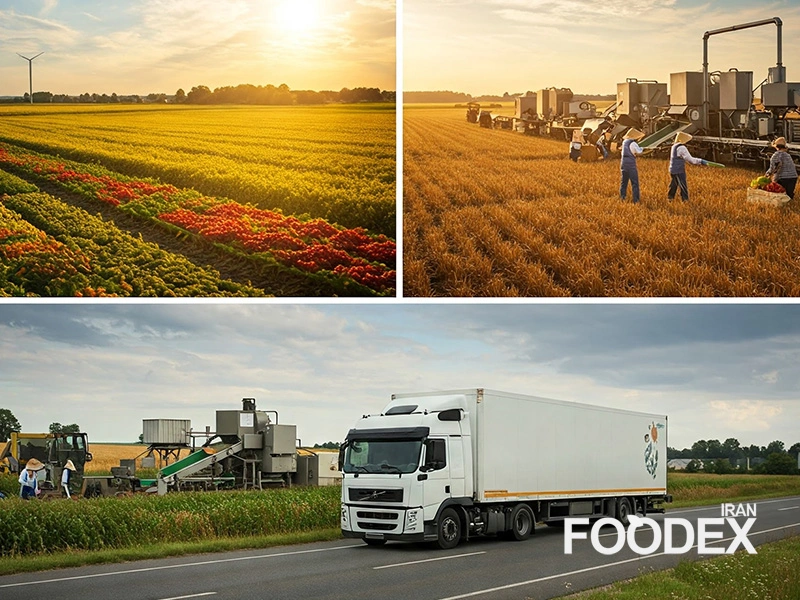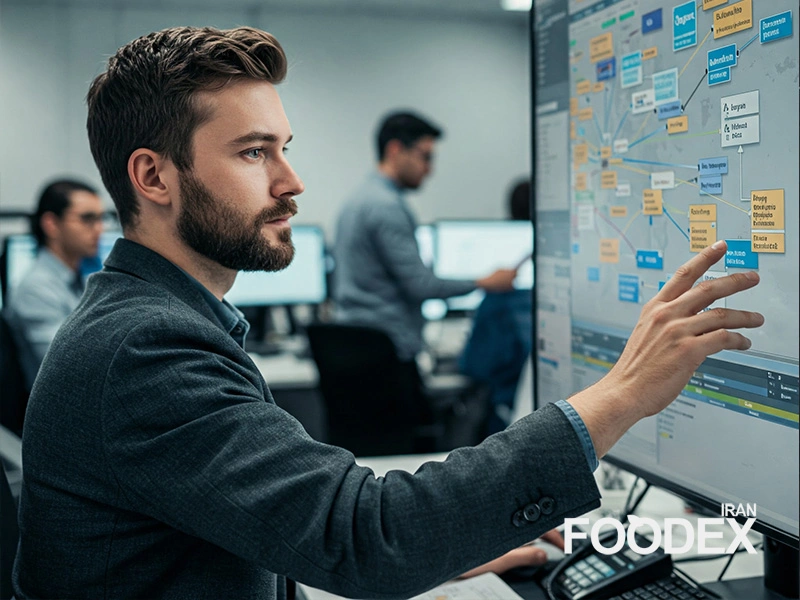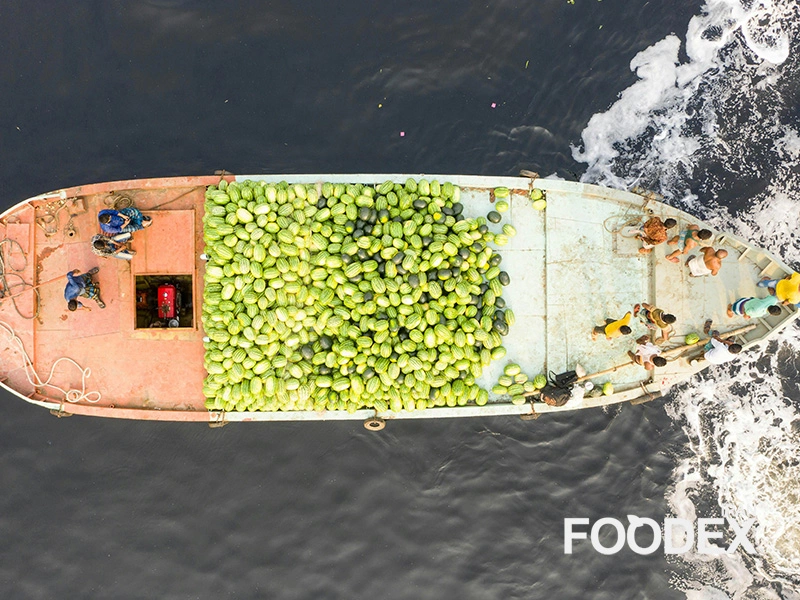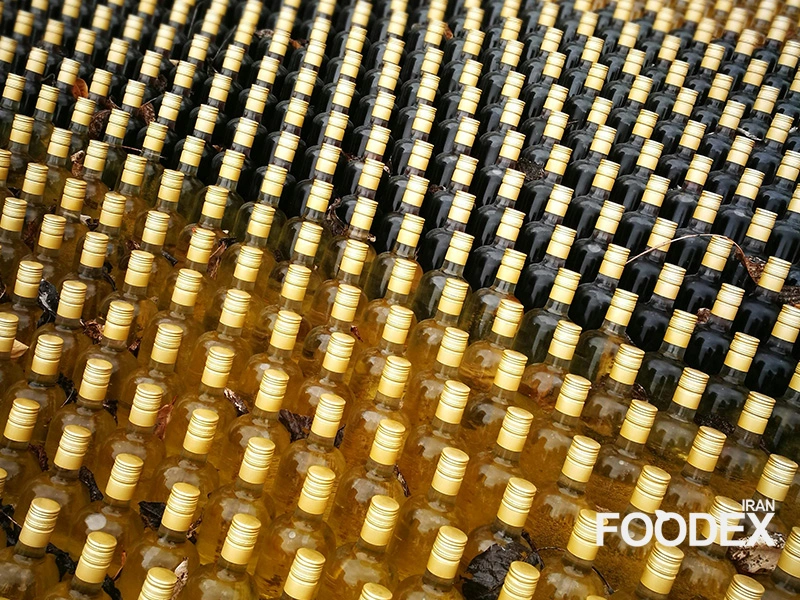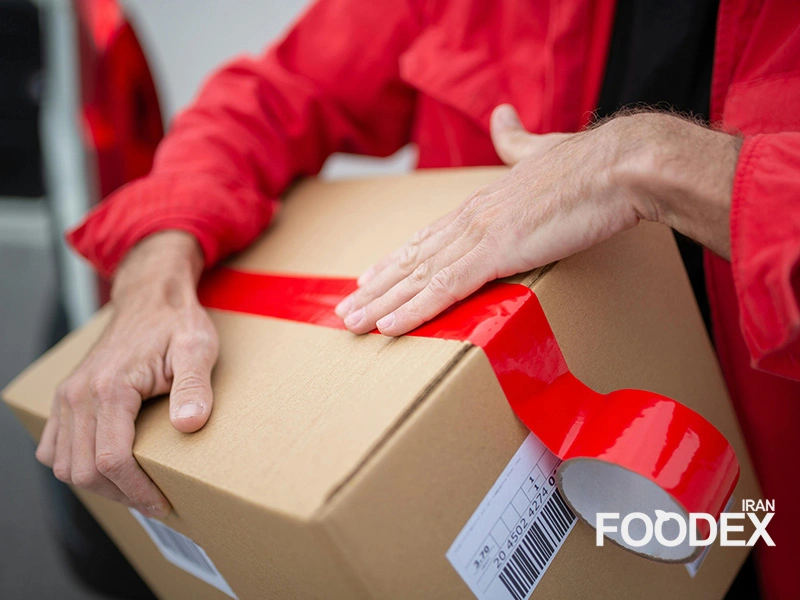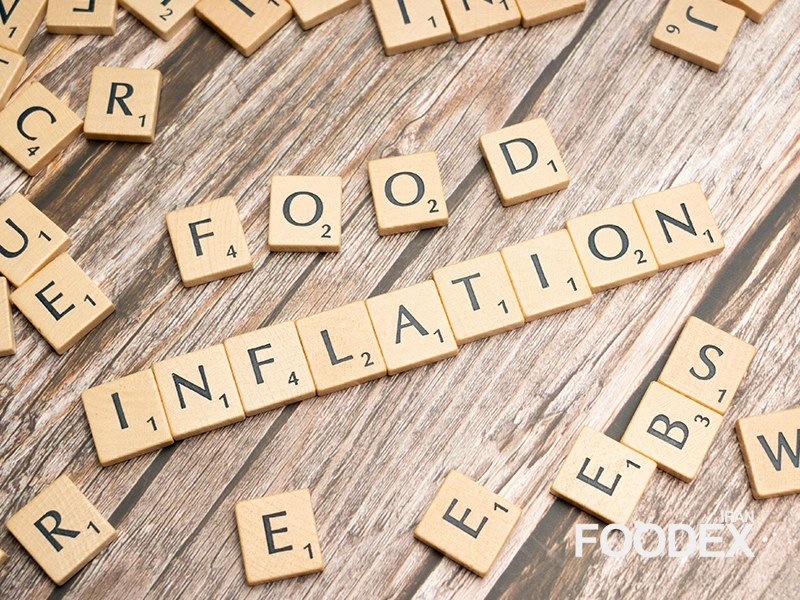The expansion of global supply chains and increasing customer expectations for fast and efficient delivery have given logistics a vital role in the food industry. Major problems, such as food spoilage, high costs, and lack of infrastructure, remain at the center of concerns in Iran and internationally.
The demand within the fresh and sustainable food market indicates a growing need to extend beyond traditional logistics services, including new technologies. IoT, AI, and other blockchain innovations have changed the face of food distribution and logistics management.
These innovations enable the food industry to carry out its tasks much more effectively.
In this article from Foodexiran Magazine, we will examine several of these transformative changes more deeply.
Common Challenges in Food Logistics
Food logistics encounter many general hurdles regarding transportation and storage, as most food products require preservation and cleanliness. Considering these, some of the key issues are as follows:
Insufficient Infrastructure: Most countries, including Iran, face serious problems in developing appropriate transportation and storage infrastructures, especially in the rural and remote parts of the country.
Food Spoilage and Waste: Major losses in the entire food supply chain refer to the amount that usually goes to waste due to poor transportation and temperature control.
Rising Demand for Fast and Efficient Delivery: The rising demand for fast and efficient delivery compels e-commerce and online shopping to push businesses toward quick and optimized delivery solutions.
Advanced Technologies in Food Logistics
New technologies have enhanced supply chains and reduced logistics costs. Some of the important technologies are as follows:
IoT in the Supply Chain
The Internet of Things links sensors to shipments and transport vehicles, which are fitted with sensors that will deliver real-time information about the status of the products.
Real-Time Tracking of Food Shipments: Food shipments along their value chains are tracked using web-connected sensors.
Temperature control and monitoring: Temperature monitoring, among other transport and storage stages, is available through IoT. This prevents the product from spoiling much before it reaches the consumer.
For example, some International companies employ IoT sensors in cold-product distribution lines to further streamline food logistics.
Artificial Intelligence (AI) and Machine Learning (ML)
Artificial intelligence will improve logistic processes with advanced algorithms and data analysis.
Smarter Routes: AI identifies the most efficient routes to deliver food, saving fuel and conserving time.
Demand Forecasting: AI algorithms analyze consumption patterns to predict future demand and avoid shortages or food waste.
Blockchain in Food Logistics
Blockchain increases transparency in the supply chain. It helps enable security and assists organizations in getting the correct information about a product’s origin and quality.
Supply Chain Transparency: Using blockchain in food products will ensure that the origin, authenticity, and quality can be traced from the farm to the store; this will help reduce fraud cases.
Tracking Product Authenticity and Quality: Blockchain maintains stage data concerning production, transportation, and storage that consumers can access.
Smarter Food Transportation and Storage
Smarter transportation and storage are key to ensuring freshness and reducing losses. Material presentation, coupled with smart temperature management and fleet monitoring, will contribute to maintaining product quality at all touchpoints of the supply chain.
Management of the Cold Chain
Cold chain logistics are vital to preventing the spoilage of perishable goods. Advanced temperature-controlled systems in transport vehicles also increase the high-quality preservation of sensitive goods.
Fleet Management Systems
Fleet management systems include organizational methods or techniques organizations adopt to enhance transportation efficiency at minimal cost.
Monitoring of Transport Fleet: Those systems give real-time information on the transport vehicles and manage possible problems as they arise.
Route Optimization and Fuel Consumption: Smart algorithms identify the best routes and minimize fuel consumption. Logistics Optimization Solutions for Food Companies in Iran: As with other countries, food logistics have invented problems in Iran that dire need local and international solutions.
Optimizing the Food Supply Chain: Best Practices for Boosting Efficiency
Read moreLogistics Optimization Solutions for Food Businesses in Iran
Most regions in Iran are not properly equipped with logistical parks. Food Spoilage: As proper cold storage systems are unavailable, most food items get spoiled before delivery.
Logistics Optimization Solutions for Food Businesses in Iran
In Iran, as in other countries, food logistics faces challenges that require local and international solutions.
Domestic Challenges in Food Logistics
Lack of Logistics Infrastructure: Many regions in Iran lack adequate food transportation and storage infrastructure.
Food Spoilage: Many food products spoil during transportation due to the absence of suitable cold storage systems.
Local Solutions for Improving Logistics
Utilizing Domestic Technologies: Some Iranian companies are developing local temperature management systems and optimizing food logistics.
Collaborating with International Companies: Leveraging the experience and technology of international companies can improve Iran’s logistics infrastructure.
For instance, implementing locally developed temperature management systems for transporting agricultural products is one solution that is gaining attention.
A New Era in Food Supply Chains
New technologies in food logistics greatly influence distribution through better quality, higher speed, and lower costs. IoT, AI, and blockchain may eventually make this food supply chain more transparent and efficient. Suppose Iranian firms integrate such technologies into their operations. In that case, they might mainly strengthen logistics infrastructure and reduce waste to be competitive in the global markets.
Sources
FoodNavigator: Articles on logistics innovation and supply chain technologies.
McKinsey and Deloitte Reports: Supply chain management insights.
Ehsan Allahverdi
Executive Manager of Foodex Iran
Marketing Consultant for Leading Food & Beverage Brands
website | linkedin

